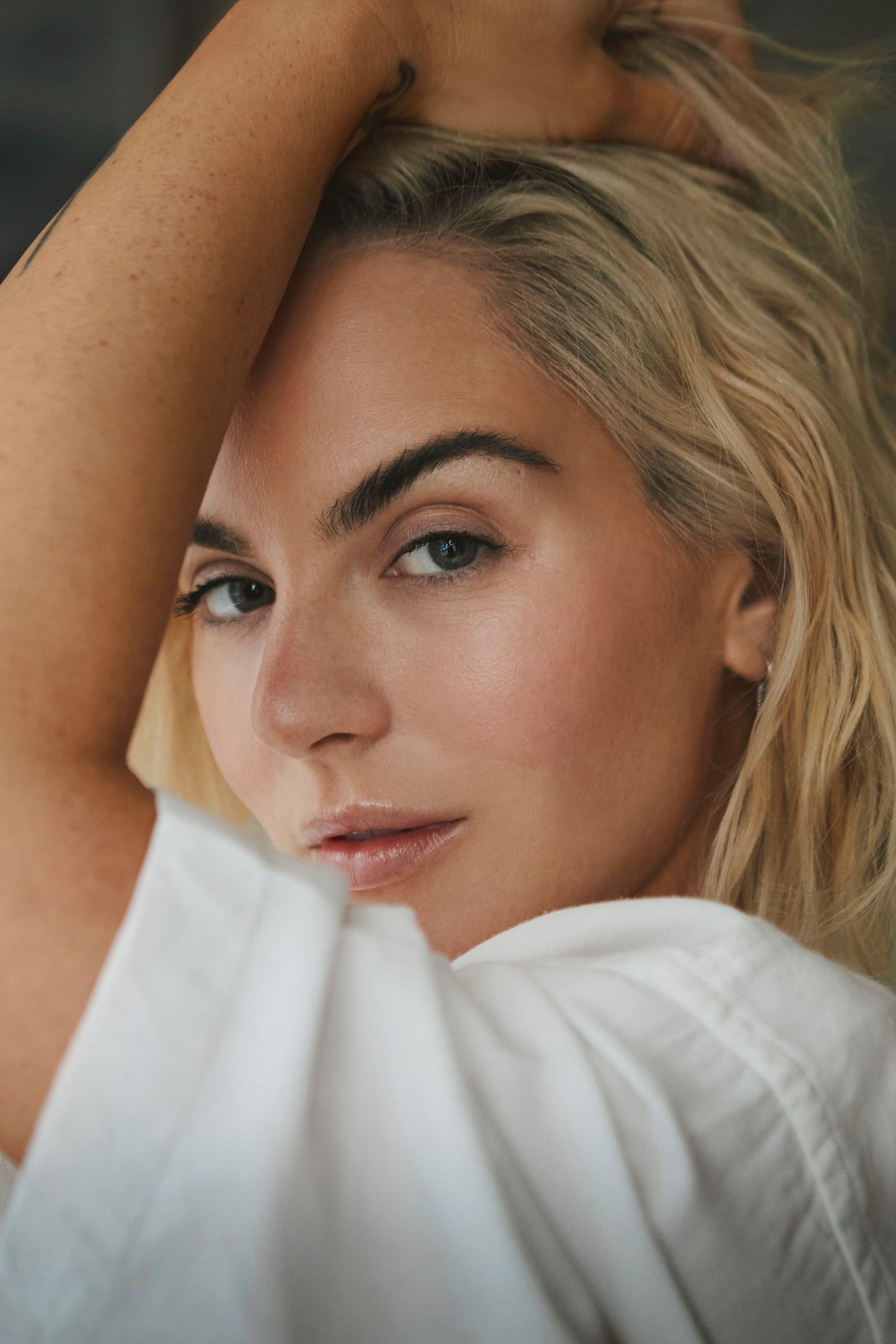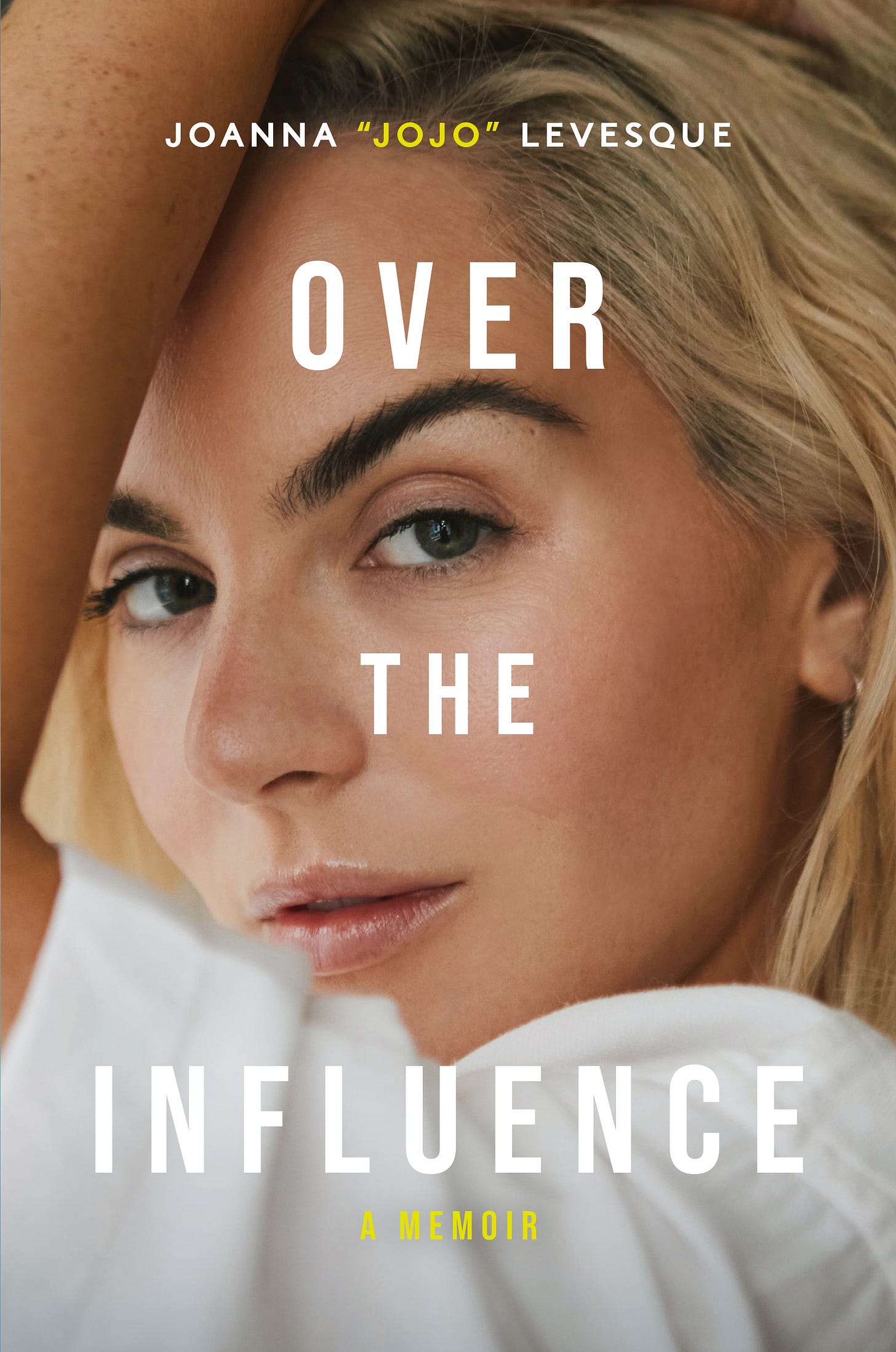Singer JoJo: Being a child star made me feel ‘other’
Joanna ‘JoJo’ Levesque reflects on her journey from teen sensation with smash hit Leave (Get Out) to making her way into adulthood.

Joanna ‘JoJo’ Levesque says being vulnerable comes “naturally” to her – and a big part of that is down to spending so much time with her mother in AA growing up.
Best known by her stage name, JoJo, the singer is no stranger to opening up her life to millions of people – she’s been in the public eye since the release of pop hit Leave (Get Out) when she was 13 back in 2004. She’s spent the last two decades making music – as well as mistakes – in front of the world, and now she’s baring all in her new memoir, Over The Influence.
Being vulnerable “comes really naturally to me”, Levesque reflects. “And I think that is because I grew up in the halls of AA, and I saw people laying it all out there, saying their most grossly raw thoughts and behaviours, and that’s informed my writing as a songwriter.”
Levesque says she saw “adults being super vulnerable” from the age of four, because she accompanied her mother Diana to AA meetings. In fact, her parents met in an AA meeting – they divorced when Levesque was young, and both struggled with addiction – Diana with alcohol, and her father, Joel, who died in 2015, with drugs.
The singer says she asked her mother’s permission before writing the book: “No one lives in a vacuum or lives completely by themselves. We’re interacting with people all the time, and my mum is one of the biggest parts of my life and my story and who I am. She was generous enough to let me share some things – my biggest concern through the writing of this book was how I wanted to paint her as a full human being with how amazing she is.”
“I was an only child and I was performing from a young age… To be adultified like that probably made me feel a bit ‘other’”
Jojo
Raised in Massachusetts, Levesque started performing on TV as early as 1998. As her profile grew, she was signed to a record label at the age of 12, releasing her debut album, JoJo, the following year, in 2004. She also acted in movies – appearing in both Aquamarine and RV in 2006 – but as she got older, label troubles stalled her career.
It’s clear Levesque’s upbringing was far from the norm, but how does she think being a child star affected her?
“I already had a hard time relating to kids my age, and I think it probably made that gap even wider. I was an only child and I was performing from a young age, and I was bringing in money for my mum and I,” she says.
“To be adultified like that probably made me feel a bit ‘other’, and that’s a theme that carried on into adulthood – being like, maybe there’s something wrong with me, so maybe I should change how I innately am to be accepted.”
Now 33, having spent two decades in the spotlight, Levesque says she finally feels her age.
“I think it’s caught up – the old soul that I was as a kid is now appropriate to be in this body,” she reflects.
“It breaks my heart a little bit for little me to feel [that way]. I assumed that pressure – I don’t know that it was put on me purposefully, but I assumed it, I wore it. And I definitely missed some developmental things that you should probably go through as a kid, like playing more and sucking at more things.”
Being in the public eye from so young also seems to have had an impact on Levesque’s body image. In the book, she recounts doing her first photoshoot when she was 12, writing: “When I went over to look at some of the shots of myself on the camera monitor, I saw an alien looking back at me. Oh my GOD. Was my forehead really that big? My nose that crooked and wide? My lips that small? I had never really seen myself like this before. It was like a twisted exaggeration of what the mirror reflected.”
Levesque recounts feeling pressured to look a certain way and lose weight to succeed in the industry, calling it “a lot on my developing mind”.
But she credits years of therapy to helping her heal from her experiences.
“I found this amazing therapist who I’ve been talking to for almost 10 years now – she really created a place for me to completely lose my s***, because I had bottled everything up so tightly,” she explains.
“I was so tightly wound, I felt parentified – I felt like I was taking care of both my parents. I felt – I don’t know if I would say resentful, because I was pushing through, but I felt a lot of anger and sadness and grief and fear. That was the beginning of my journey, a very long, up and down journey of starting healing – starting to examine the way I look at things and the things that are happening in my life, and being more empowered in the way I show up.”
According to Levesque, her therapist helped her tackle the anxiety she was feeling by giving it a name – ‘Burlinda’.
“My therapist recommended I stop saying I am depressed, or I have this, or blah, blah, blah. She’s like, think about it as this thing that comes on, but isn’t yours.
“So then I started thinking about it as, ‘Burlinda’s trying to take over’. It’s this spirit of depression, or the spirit of anxiety that tries to come and hijack your thoughts and hijack your nervous system.”
Levesque is dedicated to practicing yoga (“it’s so great to connect breath to movement”), and has entered a new stage in her career, playing Satine in Moulin Rouge! The Musical on Broadway in New York, while also working on music – which she’s releasing independently – and her own original musical.
Nowadays, the sense of urgency she felt around her career as a teenager has “dissipated”, and is instead replaced my something else.
“The urgency is now wanting to do things that make me feel alive – but not desperately needing for the next album to come out, or to prove to people my spot in the pop landscape.
“Now, I just want to be be free and have fun and be peaceful. I wouldn’t say it’s the same urgency, and I’m grateful for that – because I am 33 and I don’t even feel urgency about starting a family or things like that. I trust that there’s something going on – things are being orchestrated in my world, for my best good, in a way I don’t even understand yet, that I’ll understand in hindsight.”








